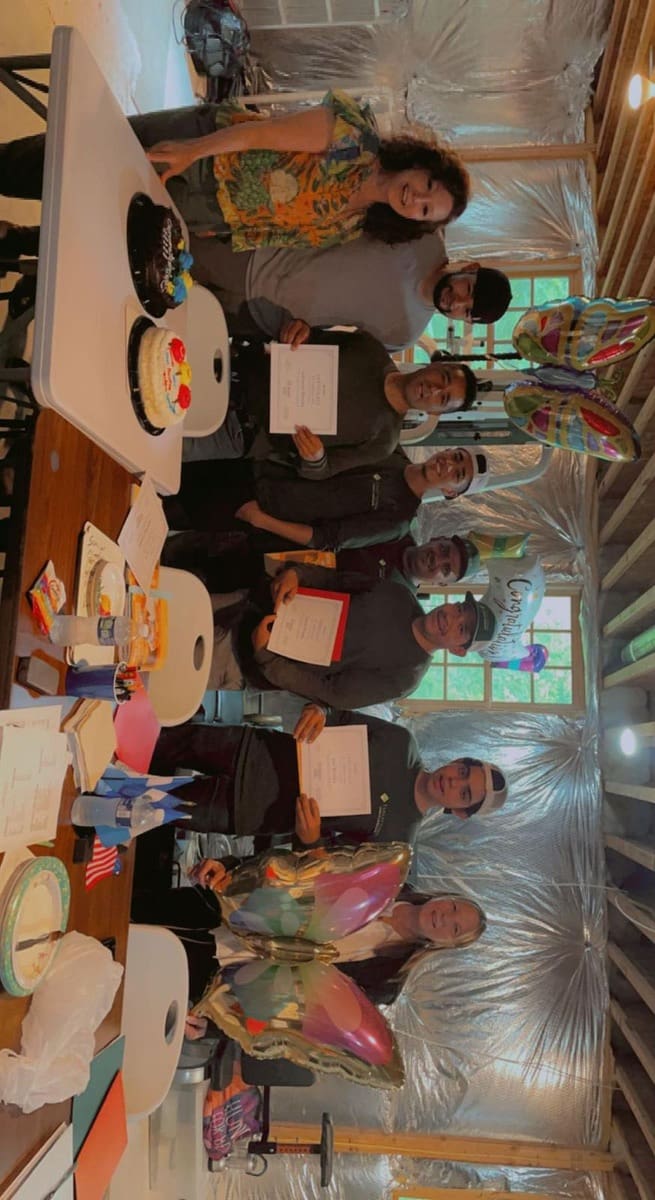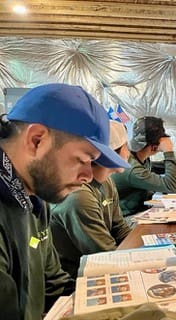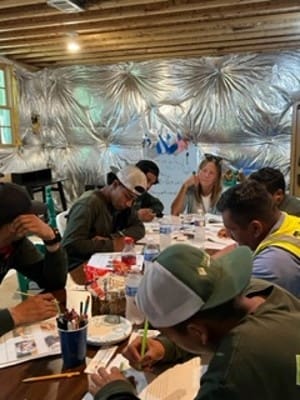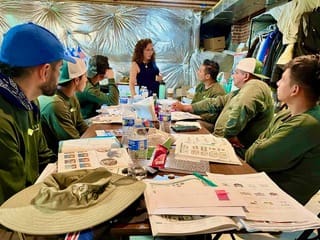
When Lisa Yost Galvin took over Tenleytown Lawn & Landscape, based in Washington, D.C., after her husband, Peter Galvin, passed away in 2021, she had to learn numerous aspects of the business, including marketing, landscaping and finance.
An additional challenge was the fact that the majority of her team only spoke Spanish.
“I had so many areas that separated us,” Galvin says. “I’m a woman. There’s culture, there’s knowledge of the landscape business, and there’s language. All of these things were seemingly hurdles that I would need to get over and it just seemed like if I could just talk to them and communicate with them that I might be able to do this business.”

A business coach suggested she tell her crew members to take nighttime English classes and when Galvin looked into these options, most of the classes were already full or there were other barriers. Some of her team worked second jobs and having to go to classes for several hours at night after working in the heat all day did not seem reasonable.
She was discussing this challenge in her social circle and found out her friend Stacy Parkinson is the chairman of the board for the Montgomery Coalition for Adult English Literacy (MCAEL). MCAEL is a local nonprofit that serves as a community resource and knowledge center for information on adult English literacy in Montgomery County, Maryland.
“One of the greatest barriers to English language classes is transportation and childcare,” Parkinson says. “It is especially true for the men who are working all day and then come home. Maybe their wives go to work, and they got to watch the kids. We started these community learning groups as a way to go into communities and try to provide more classes for more learners.”
MCAEL assessed the employees to see what English level to teach and her employees were determined to be at the basic level, meaning they spoke almost no English. Parkinson volunteered to start teaching Galvin’s team.

Photo: Tenleytown Lawn & Landscape
“I was greatly inspired by Lisa,” Parkinson says. “My feeling is if you have an employer who is willing to dedicate her resources to her employees to communicate, let’s do everything we can as a community to help that employer.”
The English classes are mandatory and held on Friday afternoons from 1 to 3 p.m. Galvin admits the initial response was a little trepidation, but the employees were also grateful as there are not a lot of employers who are going to pay for them to learn English. It has helped her crew understand she cares about them and wants them to succeed.
Parkinson says they started with the basics like ‘how are you?’ and ‘what’s your name?’ and have covered concepts like colors, foods, transportation, weather and landscape terms. They have also covered parts of the body and words for pain so they can properly communicate if they’ve been injured in the field.
Currently, they are working on the different verb tenses so when Galvin asks a team member, “Is this job done?” or “Are you doing it now?” they know how to respond.
Parkinson uses a lot of realia, objects from everyday life, to serve as a teaching aid. She does not speak Spanish in the class. The students aren’t given homework, but Galvin supplements the classes with a Duolingo subscription, where they are on a family plan. It will let her know when to congratulate an employee for their streak. Galvin is also learning Spanish on Duolingo as well.
“I’m constantly amazed by the progress they’re making with just two hours a week and I think a lot of that credit goes to the support from their employer,” Parkinson says.
Each adult learner progresses at a different pace but it typically takes between 500 and 1,000 hours of study to reach proficiency in the English language.
Galvin says since starting the classes, the demeanor of her employees has changed as they have more confidence. She says she can better communicate with her crews from a language and trust perspective. They can also take on more responsibility and earn more for their families now.

“It is such a high rate of return for the little bit of time and resources that I put into it,” Galvin says. “Their productivity, wanting to work harder for me, the respect that they have for me, the ability to communicate with my customers, that they look my customers in the eye and they answer what questions they have.”
Not only do the English classes benefit the employees in the workplace but it also allows them to be more involved in their children’s education and be able to talk to their healthcare providers directly without the need for a translator.
As for the business, Galvin says she never considered selling it. She says one of the reasons she kept the business is due to her husband’s legacy. Many of the other landscape owners her husband had worked with over the years reached out to help and mentor her.
“There are all these people who all I have to do is ask,” Galvin says. “They’re so supportive. All of them have been mentors and willing to help at any point.”
She says her background in emergency medicine has allowed her to manage expectations and let customers know that they’re going to take care of them. Despite the frustrations, she has found this new career fun and rewarding.
“Revenue was $500,000 and we were several $100,000 in debt,” Galvin says. “The first year revenue went up to $900,000 and this year, we hit $1.4, almost $1.5 million.”

